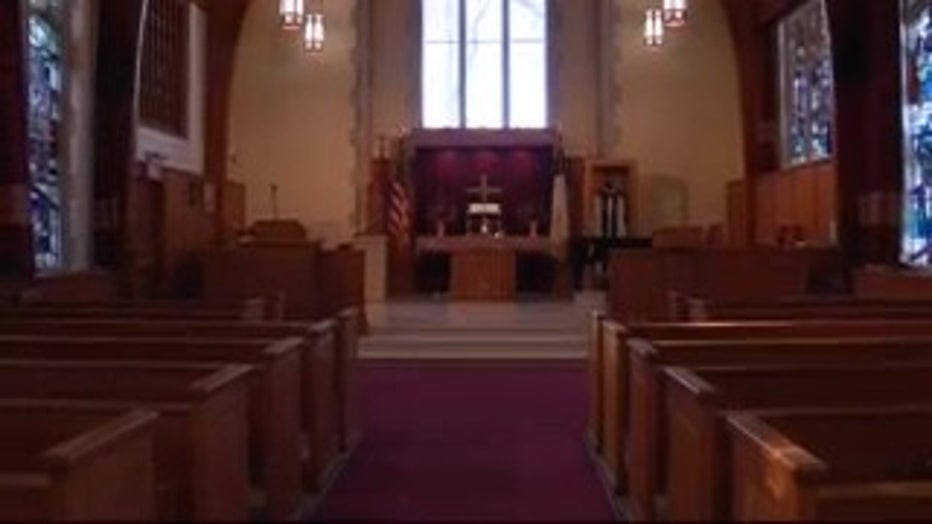Church leaders reflect on COVID challenges, lessons 1 year into pandemic
DETROIT (FOX 2) - The COVID-19 pandemic impacted the way people worship, as churches closed their doors and adopted digital methods to keep the faithful connected during this challenging time.
COVID-19 one year later: The way it has changed worshiping our faiths
The COVID-19 pandemic impacted the way people worship, as churches closed their doors and adopted digital methods to keep the faithful connected during this challenging time.
Church changes
Rev. Charles C. Adams, who leads Hartford Memorial Baptist Church in Detroit, said he wanted to change perspectives of the pandemic.
"We really worked to help them look at it a different way -- to change their perspective. It wasn’t so much that God left them or abandoned them or left them in the hands of this pandemic, but that God was with them through this time and that we were with them," he said.
Adams’ congregation was one of the first larger churches to move to online services. He said that move was criticized but he believes it saved lives.
"I stopped counting how many people that had passed that were members and part of the community surrounding us due to COVID-related symptoms," he said.
Closing doors to houses of worship was a decision many faith leaders around Metro Detroit needed to do as the pandemic ravaged communities.
Despite the heavy toll the pandemic has taken, the Pew Research Center reports that more Americans reported that it strengthened their faith.
"As a synagogue building, we shut down. But the doors of our communities and the hearts of our families were very much open. So I’m very proud that we innovated an online worship experience that actually ended up bringing in more people to our prayer services than were actually coming in person prior to the pandemic," said Rabbi Aaron Starr, of Shaarey Zedek in Southfield.
A chance to serve others
Tyler St. Clair, of Cornerstone Church in Detroit, said people of faith have had to adapt, but that worshipping and serving others was still possible.
"Life has thrown us many curveballs and the pandemic has sucker-punched us but that doesn’t mean you can’t still have a relationship with God. It looks different, it’s harder, and there are way more challenges but it’s still possible," he said.
St. Clair said his congregation of roughly 80 people has raised nearly $40,000 to help local families during the pandemic.
"We've been just been encouraging one another to check on people. If you know a brother or sister who struggles with anxiety, depression, loneliness and things of that nature it’s incumbent on you to check on them because these are times that people tend to sink emotionally and spiritually," he said.
Hartford Memorial has fed more than 25,000 people since the pandemic began, the church served has a covid testing site and has adopted local families hard hit by tragedy.

"We have a slogan here: everybody may not belong to Hartford, but Hartford belongs to everybody," Adams said.
Lessons to be learned
The religious leaders said that despite the loss and hardships brought on by the pandemic, there are lessons to be learned.
"Faith is a muscle that has to be stretched and it will be stretched to see if you truly believe what you believe," St. Clair said.
Starr referred to this period of time as an opportunity to help others.
"I think we have an opportunity before us and God is watching how we respond. Are we caring more deeply for others? Are we working harder to protect the environment? What are we doing to really uplift those who’ve fallen to care for those most in need?" he asked.
Adams said the pandemic brought out the good in people, but at a terrible cost.
"if you want to know my theology, I believe this COVID crisis has brought out the best in us but it has come at a terrible price," he said. "I understand now what Robert Kennedy meant when he said upon the passing of MLK Jr. that this is the awful grace of God. It is something that has challenged us to be our best, but yet we must say that with all humility because of the human cost."

